- Skip to Main
- Master's Programs
- Ph.D. Programs
- Global & Online Programs
- Library and Information Science Dual - Degree Program
- Certificate Programs
- Application Resource Center
- Financial Aid
- Admissions Events
- Campus Tours
- Newly-Admitted Students
- Message from the GSAS Dean
- Academic Calendar
- GSAS Bulletin
- Inter-University Doctoral Consortium
- Submitting Your Dissertation
- Fellowships and Awards
- Fellowships & Awards
- Alumni Features
- Public Humanities Initiative
- New Student Orientation
- GSAS Convocation
- The Master's College
- Diversity, Equity, and Inclusion
- OASA Room Reservations
- Graduate Student Council
- Graduate Student Clubs
- Student Resources
- Doctoral Alumni Association
- Senior Administration
- Dean's Office
- Policies and Procedures
- Directors of Graduate Studies & Program Directors
- Standing Committees
- History of GSAS
- Dean's Conference Room
- Administrative Resources
- Dean's Advisory Council
- Research in GSAS
- Give to GSAS
- NYU/Axinn Foundation Prize
- Event Calendar

Creative Writing
Degrees and fields of study.
- M.F.A. in Creative Writing - Fiction
- M.F.A. in Creative Writing - Poetry
- M.F.A. in Creative Writing - Creative Nonfiction
- M.F.A. in Writers Workshop in Paris - Fiction
- M.F.A. in Writers Workshop in Paris - Poetry
- M.F.A. in Writers Workshop in Paris - Creative Nonfiction
Application Deadlines
Applications and all supporting materials must be submitted online by 5PM Eastern Time. If a listed deadline falls on a Saturday, Sunday, or U.S. federal holiday, then the next business day will be the actual deadline.
Creative Writing Programs
- December 18 : Fall admission
Writers Workshop in Paris Programs
- September 1 : January residency (spring application)
- February 1 : June residency (summer application)
Requirements
In addition to the general application requirements, the department specifically requires:
Test Scores
- Please do not send GRE test scores — they will not be reviewed by our Admissions Committee.
TOEFL/IELTS
Applicants must submit official TOEFL or IELTS scores unless they:
Are a native English speaker; OR
Are a US citizen or permanent resident; OR
Have completed (or will complete) a baccalaureate or master's degree at an institution where the language of instruction is English.
Statement of Academic Purpose
In a concisely written statement, please describe your past and present work as it relates to your intended field of study, your educational objectives, and your career goals. In addition, please include your intellectual and professional reasons for choosing your field of study and why your studies/research can best be done at the Graduate School of Arts and Science at NYU. The statement should not exceed two double-spaced pages.
Writing Sample
A creative writing sample is required. It should not exceed 25 double-spaced pages for fiction and nonfiction applicants and 10 single-spaced pages for poetry applicants. The font size should be 12 point or larger.
Useful Links
- Department Website
- Email [email protected]
- Application Portal
- Back to Programs, Requirements and Deadlines
The Graduate School of Arts and Science reserves the right to change this information at any time. This page supersedes all previous versions.
Last updated August 2023.
- Skip to Main
- Program of Study
Course Offerings
Creative writing (2022 - 2024).
In addition to the on-campus creative writing courses offered throughout the year, special January term and summer programs offer students a chance to study intensively and generate new writing in Florence, New York, and Paris.
Creative Writing: Introduction to Prose and Poetry CRWRI-UA 815 Formerly Creative Writing: Introduction to Fiction and Poetry. Identical to CRWRI-UA 9815. Not repeatable for credit. Workshop. Offered in fall, winter, spring, and summer. 4 points. An exciting introduction to the basic elements of poetry and prose, with in-class writing, take-home reading and writing assignments, and substantive discussions of craft. Structured as a workshop: students receive feedback from their instructor and their fellow writers in a roundtable setting and should be prepared to offer their classmates responses to their work.
Intermediate Workshops in Fiction, Poetry, and Creative Nonfiction CRWRI-UA 816 (Intermediate Fiction Workshop), CRWRI-UA 817 (Intermediate Poetry Workshop), CRWRI-UA 825 (Intermediate Creative Nonfiction Workshop) Prerequisite for Fiction : Creative Writing: Introduction to Prose and Poetry (CRWRI-UA 815), or Creative Writing (CRWRI-UA 9815), or Writers in New York: Fiction (CRWRI-UA 818), or Writers in New York: Poetry (CRWRI-UA 819), or Writers in New York: Creative Nonfiction (CRWRI-UA 835), or Writers in Paris: Fiction (CRWRI-UA 9818), or Writers in Paris: Poetry (CRWRI-UA 9819), or Writers in Florence: Fiction (CRWRI-UA 9828), or Writers in Florence: Poetry (CRWRI-UA 9829), or Intensive Seminar in Fiction (CRWRI-UA 861; formerly Master Class in Fiction, CRWRI-UA 860), or equivalent. Workshop. Offered in fall, winter, spring, and summer. 4 points. Prerequisite for Poetry : Creative Writing: Introduction to Prose and Poetry (CRWRI-UA 815), or Creative Writing (CRWRI-UA 9815), or Writers in New York: Fiction (CRWRI-UA 818), or Writers in New York: Poetry (CRWRI-UA 819), or Writers in New York: Creative Nonfiction (CRWRI-UA 835), or Writers in Paris: Fiction (CRWRI-UA 9818), or Writers in Paris: Poetry (CRWRI-UA 9819), or Writers in Florence: Fiction (CRWRI-UA 9828), or Writers in Florence: Poetry (CRWRI-UA 9829), or Intensive Seminar in Poetry (CRWRI-UA 862; formerly Master Class in Poetry, CRWRI-UA 870), or equivalent. Workshop. Offered in fall, spring, and summer. 4 points. Prerequisite for Creative Nonfiction : Creative Writing: Introduction to Prose and Poetry (CRWRI-UA 815), or Creative Writing (CRWRI-UA 9815), or Writers in New York: Fiction (CRWRI-UA 818), or Writers in New York: Poetry (CRWRI-UA 819), or Writers in New York: Creative Nonfiction (CRWRI-UA 835), or Writers in Paris: Fiction (CRWRI-UA 9818), or Writers in Paris: Poetry (CRWRI-UA 9819), or Writers in Florence: Fiction (CRWRI-UA 9828), or Writers in Florence: Poetry (CRWRI-UA 9829), or Intensive Seminar in Creative Nonfiction (CRWRI-UA 863; formerly Master Class in Creative Nonfiction, CRWRI-UA 880), or equivalent. Workshop. Offered in fall and spring. 4 points. Offer an opportunity to continue the pursuit of writing at the intermediate level. Integrate in-depth craft discussions and extensive outside reading to deepen students' understanding of their chosen genre and broaden their knowledge of the evolution of literary forms and techniques. Each may be repeated three times for credit.
Writers in New York: Fiction, Poetry, or Creative Nonfiction CRWRI-UA 818 (Writers in New York: Fiction), CRWRI-UA 819 (Writers in New York: Poetry), CRWRI-UA 835 (Writers in New York: Creative Nonfiction) Application required. Workshop. Offered in the summer. 8 points per course. Offer poets and fiction writers an opportunity to develop their craft while living the writer's life in Greenwich Village. Students participate in daily workshops and craft classes, are mentored by accomplished professional writers, and attend readings, lectures, panel discussions, and seminars led by New York-based writers and editors. Assignments encourage immersion in the city. Students work intensively to generate new writing and also attend a lively series of readings, lectures, literary walking tours, and special events. May be repeated once for credit.
Advanced Workshops in Fiction, Poetry, and Creative Nonfiction CRWRI-UA 820 (Advanced Fiction Workshop), CRWRI-UA 830 (Advanced Poetry Workshop), CRWRI-UA 850 (Advanced Creative Nonfiction Workshop) Prerequisite for Fiction : Intermediate Fiction Workshop (CRWRI-UA 816), or Writers in New York: Fiction (CRWRI-UA 818), or Writers in Paris: Fiction (CRWRI-UA 9818), or Writers in Florence: Fiction (CRWRI-UA 9828), or Intensive Seminar in Fiction (CRWRI-UA 861; formerly Master Class in Fiction, CRWRI-UA 860), or equivalent. Workshop. Offered in fall and spring. 4 points. Prerequisite for Poetry : Intermediate Poetry Workshop (CRWRI-UA 817), or Writers in New York: Poetry (CRWRI-UA 819), or Writers in Paris: Poetry (CRWRI-UA 9819), or Writers in Florence: Poetry (CRWRI-UA 9829), or Intensive Seminar in Poetry (CRWRI-UA 862; formerly Master Class in Poetry, CRWRI-UA 870), or equivalent. Workshop. Offered in fall and spring. 4 points. Prerequisite for Creative Nonfiction : Intermediate Creative Nonfiction Workshop (CRWRI-UA 825), or Writers in New York: Creative Nonfiction (CRWRI-UA 835), or Intensive Seminar in Creative Nonfiction (CRWRI-UA 863; formerly Master Class in Creative Nonfiction, CRWRI-UA 880), or equivalent. Workshop. Offered in fall and spring. 4 points. Provide students with the opportunity to hone their individual voices and experiment with different aesthetic strategies in genre-specific workshops taught by eminent writers in the field. Focus on revision techniques, the development of sustainable writing processes, and the broadening of students' knowledge of classical and contemporary masters. Each workshop has a distinct emphasis and area of exploration; course descriptions are available online prior to registration. Each may be repeated three times for credit.
Intensive Seminars in Fiction, Poetry, and Creative Nonfiction CRWRI-UA 861 Intensive Seminar in Fiction, CRWRI-UA 862 Intensive Seminar in Poetry, CRWRI-UA 863 Intensive Seminar in Creative Nonfiction Prerequisite for Fiction : Creative Writing: Introduction to Prose and Poetry (CRWRI-UA 815), or Creative Writing (CRWRI-UA 9815), or Intermediate Fiction Workshop (CRWRI-UA 816), or Writers in New York: Fiction (CRWRI-UA 818), or Writers in New York: Poetry (CRWRI-UA 819), or Writers in New York: Creative Nonfiction (CRWRI-UA 835) or Writers in Paris: Fiction (CRWRI-UA 9818), or Writers in Paris: Poetry (CRWRI-UA 9819), or Writers in Florence: Fiction (CRWRI-UA 9828), or Writers in Florence: Poetry (CRWRI-UA 9829), or Advanced Fiction Workshop (CRWRI-UA 820), or equivalent. Recommended prerequisite: Advanced Fiction (CRWRI-UA 820). Application required. Workshop. Offered in fall and spring. 4 points. Prerequisite for Poetry : Creative Writing: Introduction to Prose and Poetry (CRWRI-UA 815), or Creative Writing (CRWRI-UA 9815), or Intermediate Poetry Workshop (CRWRI-UA 817), or Writers in New York: Fiction (CRWRI-UA 818), or Writers in New York: Poetry (CRWRI-UA 819), or Writers in New York: Creative Nonfiction (CRWRI-UA 835), or Writers in Paris: Fiction (CRWRI-UA 9818), or Writers in Paris: Poetry (CRWRI-UA 9819), or Writers in Florence: Fiction (CRWRI-UA 9828), or Writers in Florence: Poetry (CRWRI-UA 9829), or Advanced Poetry Workshop (CRWRI-UA 830), or equivalent. Recommended prerequisite: Advanced Poetry (CRWRI-UA 830). Application required. Workshop. Offered in fall and spring. 4 points. Prerequisite for Creative Nonfiction : Creative Writing: Introduction to Prose and Poetry (CRWRI-UA 815), or Creative Writing (CRWRI-UA 9815), or Writers in New York: Fiction (CRWRI-UA 818), or Writers in New York: Poetry (CRWRI-UA 819), or Writers in New York: Creative Nonfiction (CRWRI-UA 835), or Writers in Paris: Fiction (CRWRI-UA 9818), or Writers in Paris: Poetry (CRWRI-UA 9819), or Writers in Florence: Fiction (CRWRI-UA 9828), or Writers in Florence: Poetry (CRWRI-UA 9829), or Intermediate Creative Nonfiction Workshop (CRWRI-UA 825), or Advanced Creative Nonfiction Workshop (CRWRI-UA 850), or equivalent. Recommended prerequisite: Advanced Creative Nonfiction (CRWRI-UA 850). Application required. Workshop. Offered in fall and spring. 4 points. Taught by acclaimed poets and prose writers to select NYU undergraduates. Application is required for admission. Each is limited to 12 students and provides intensive mentoring and guidance for serious and talented undergraduate writers. Full details of these courses and their applications are shared on the program’s undergraduate listserv; students are added to the listserv when they enroll in Creative Writing: Introduction to Prose and Poetry (CRWRI-UA 815). They may also contact [email protected] for information.
Creative Writing Internship CRWRI-UA 980 Prerequisites: a declared minor in creative writing, two CRWRI-UA courses or the equivalent, and approval of the program. An internship may not be used to fulfill the minimum requirements of the minor. For full policies, registration procedures, and the application form, please visit the program's website. Offered in fall, spring, and summer. 2 points. Requires 8 to 12 hours of work per week. Must be with an external (non-NYU) organization related to creative writing (e.g., a literary agency, magazine, publisher, or outreach program) and should involve some substantive aspect of writerly work. Requires a final five- to seven-page report, and an evaluation is solicited from the intern's supervisor. Grading is pass/fail. Students are responsible for finding the internship and receiving program approval before the end of the Albert add/drop period each term.
Writers in Paris: Fiction or Poetry CRWRI-UA 9818 (Writers in Paris: Fiction), CRWRI-UA 9819 (Writers in Paris: Poetry) Application required. Workshop. Offered in the summer. 8 points per course. Offer poets and fiction writers an opportunity to experience the writer's life in Paris. Students participate in daily workshops and craft classes, are mentored by accomplished professional writers, and attend readings and special seminars led by Paris-based writers and editors. Assignments encourage immersion in the city. Students work intensively to generate new writing and also attend a lively series of readings, lectures, literary walking tours, and special events. May be repeated once for credit.
Writers in Florence: Fiction or Poetry CRWRI-UA 9828 (Writers in Florence: Fiction), CRWRI-UA 9829 (Writers in Florence: Poetry) Application required. Workshop. Offered in the summer. 8 points per course. A literary retreat in Florence for poets and fiction writers. Students participate in daily workshops and craft classes, are mentored by acclaimed writers, and attend readings and special seminars on all aspects of the writer's life. Assignments are designed to encourage serious literary study, as well as immersion in the local landscape, and students are expected to work intensively to generate new writing. May be repeated once for credit.
- Masters Degrees
- Bachelors Degrees
- Associate Degrees
- Career Pathways Bridge Program
- Online Degree Programs: Bachelor’s, Master’s & Associate’s
- Global Offerings
- Faculty Spotlight
- Faculty Directory
- Open Faculty Positions
- Policies and Documents
- Professional Studies
- Continuing Education
- Executive Education for Industry Leaders
- High School Academy
- Areas of study
- Divisions & Departments
- Professional Pathways
- Degree Directory
- Graduate Admissions Criteria
- Graduate Application Requirements and Deadlines
- Graduate Financial Aid
- Summer Publishing Institute
- Undergraduate
- Undergraduate Admissions Criteria
- Undergraduate Application Requirements and Deadlines
- Undergraduate Financial Aid
- Transfer Students
- Adult Learning
- Your Community
- New Students
- DAUS: Military Veterans
- Global Perspective
- Graduate Events
- Undergraduate Events
- Frequently Asked Questions
- Student Success
- Academic Advising
- Student Life
- Resources and Services
- University Life
- Arts, Culture, and Entertainment
- Health and Wellness
- Studying in New York City
- Travel and Transportation
- Policies and Procedures
- NYU SPS Wasserman Center
- Career Success
- Industry Engagement
- Hire NYU Talent
- Faculty Engagement
- STUDENTS & ALUMNI: GET STARTED
- Events Central
- Office of Events
- Meet the Team
- SPS Conference Room and Event Spaces
- Event Request Form
- Event Guidelines
- Conferences
- Hospitality Conference
- Capital Markets in Real Estate
- Women in Real Estate
- REIT Symposium
- NYU Coaching and Technology Summit
- Future Workforce Global Summit
- NYU SPS Events
- Undergraduate Convocation
- Graduate Convocation
- Student Events
- Capstone Fair
- Alumni Advantage
- Alumni Stories
- Current Alumni
- Give to NYU SPS
- Parents Council
- SPS Reunion
- BA in Humanities
Creative Writing
The Creative Writing concentration is designed for beginner through experienced writers who wish to develop their craft. Through studio classes in poetry, prose, and performance, you will concentrate on generating texts and learning the conventions of particular genres and forms. You also will participate in interdisciplinary humanities seminars that bring together reading, writing, theory, and method.
Build Your Audience
Improve as a writer with practice and feedback and increase your audience through publication in our literary and arts journal, Dovetail.
Faculty Contact
Dr. Clif Hubby
(212) 992-8397
Requirements
Creative writing concentration: craft studios category.
Students select four credits from Craft Studios and four credits from Workshops and an additional eight credits from either category.
- CWRG1-UC5243 The Craft of Playwriting 4
- CWRG1-UC5242 Poetry Studio 4
- CWRG1-UC5241 Prose Studio 4
Creative Writing Concentration: Workshops Category
Students select four credits from Workshops and four credits from Craft Studios and an additional eight credits from either category.
- CWRG1-UC5277 Creative Nonfiction Workshop 4
- CWRG1-UC5271 Fiction Workshop 4
- CWRG1-UC5272 Poetry Workshop 4
- CWRG1-UC5280 Writing for Children & Adolescents 4
- CWRG1-UC5275 Writing for The Screen 4
- CWRG1-UC5273 Writing for The Theater 4
- MEST1-UC6050 Digital Storytelling 4
- MEST1-UC6013 Writing for Media and Communication 4
Creative Writing (Minor)
Program description , minor declaration.
The New York University Program in Creative Writing, among the most distinguished programs in the country, is a leading national center for the study of writing and literature. The undergraduate and graduate programs provide students with an opportunity to develop their craft while working closely with some of the finest poets and novelists writing today. The creative writing program occupies a lovely townhouse on West 10th Street in the same Greenwich Village neighborhood where so many writers have lived and worked. The Lillian Vernon Creative Writers House allows writers—both established and emerging—to share their work in an inspiring setting.
The program's distinguished faculty of award-winning poets and prose writers represents a wide array of contemporary aesthetics. Our instructors have been the recipients of Pulitzer Prizes, MacArthur Genius, Guggenheim, and NEA fellowships, National Book and National Book Critics Circle awards, Pushcart Prizes, the Whiting Writer's Award, and more.
Undergraduates are encouraged to attend the program's reading series, which brings both established and new writers to NYU. Writing prizes, special events, and our undergraduate literary journal, West 10th , further complement our course offerings and provide a sense of community for undergraduate writers. If you have questions about the minor in creative writing, please contact us at [email protected] .
To request declaration of a minor, CAS students should visit the host department. To request declaration of a cross-school minor, CAS students should complete the online Minor Application available in their Albert Student Center. Students may also use the Minor Application in Albert to request cancellation of a CAS or cross-school minor.
Program Requirements
The minor requires the completion of 16 credits, comprised of the following:
General Information
The introductory workshop CRWRI-UA 815 Creative Writing: Intro Prose & Poetry , or the study away course CRWRI-UA 9815 Creative Writing , is generally the required foundational course, to be followed by 12 additional credits from the program's CRWRI-UA course offerings.
However, students who begin their minor by taking one of the program's 8-credit summer intensives—Writers in New York (CRWRI-UA 818, 819, or 835), Writers in Paris (CRWRI-UA 9818 or 9819), or Writers in Florence (CRWRI-UA 9828 or 9829)—are not required to take the introductory workshop (CRWRI-UA 815, CRWRI-UA 9815, or equivalent). Following completion of one of these 8-credit intensives, students may take advanced coursework in the same genre as their summer intensive and/or move directly into an intermediate workshop in an alternative genre. Students may also repeat an 8-credit summer intensive to complete the 16-credit minor. Intermediate and advanced workshops may be taken three times for credit.
Students wishing to begin the creative writing minor while studying away at an NYU site should register for CRWRI-UA 9815 Creative Writing or, if studying away in the summer, for one of the 8-credit intensives offered in Paris and Florence (CRWRI-UA 9818, 9819, 9828, or 9829). These courses are not considered outside courses and will automatically be counted toward the creative writing minor. All other creative writing courses taken away require a petition for substitution and are subject to approval by the program.
Policies Applying to the Minor
Policy on course substitutions, nyu policies, college of arts and science policies.
The creative writing minor must be completed with a minimum grade point average of 2.0 (C). No credit toward the minor is granted for grades of C- or lower, although such grades will be computed into the grade point average of the minor, as well as into the overall grade point average. No course to be counted toward the minor may be taken on a Pass/Fail basis.
Students may petition to apply a maximum of one outside course toward the minor, either as the introductory prerequisite (equivalent to CRWRI-UA 815 or 9815) or as an elective. An outside course is any NYU creative writing course without a CRWRI-UA rubric. To petition to substitute an outside course, students must complete the course substitution petition form (available on the program's website) and provide the course syllabus (as described on the petition form). The undergraduate programs manager will review the submitted syllabus to verify course level and determine substitution eligibility. Students must petition for course substitution prior to registration.
If the program pre-approves a non-NYU course for substitution, it can only be counted toward the minor if 1. the Office of the Associate Dean for Students in CAS has also approved the course credit for transfer, and 2. the student receives a grade of C or better.
University-wide policies can be found on the New York University Policy pages .
A full list of relevant academic policies can be found on the CAS Academic Policies page .
Print Options
Send Page to Printer
Print this page.
Download Page (PDF)
The PDF will include all information unique to this page.
- Become A Member
- Remember Me Forgot Password?
- CANCEL Login
Association of Writers & Writing Programs
- Writing Programs & Pedagogy
- Community & Calendar
- Magazine & Media
- AWP Conference
- Writers' Conferences & Centers
- Guide to Writing Programs

- Advice Articles
- Campus Visit Video Series
NYU Creative Writing Program
New york, united states.
The Graduate Creative Writing Program at New York University has distinguished itself for more than three decades as a leading national center for the study of literature and writing. The program enables students to develop their craft while working closely with some of today's finest poets and writers. Students also have an opportunity to enjoy America's most literary terrain, benefiting from the extensive cultural resources of the University and New York City.
Each year the faculty selects a talented group of writers and offers them rigorous and supportive teaching. Most candidates take one workshop and one other course each semester and complete the program in two years; only one writing workshop may be taken per semester. In the final semester, students present a creative thesis consisting of a substantial body of finished work in poetry, fiction, or nonfiction.
The NYU Creative Writing program provides an environment which enables students to work seriously at their craft and, through outreach programs, the literary journal Washington Square, and public readings, bring the art of writing to the larger community of New York City. This is a serious community of writers engaged in an exceptional program of study.
Washington Square is the literary review of New York University's Graduate Creative Writing Program. A biannual literary magazine, it is staffed and edited by CWP students. It includes work by established writers as well as NYU alumni. It sponsors a student reading series open to the public and enables students to experience working on a literary magazine in all phases of its production.
NYU's Creative Writing Program offers a prestigious literary reading series, free and open to the public. (Support is provided by NY Community Trust, the NY State Council on the Arts, Poets & Writers, Inc., Poetry Society of America, the NYU Book Center, and many more.) Guest writers are invited to meet informally with students during their visits. Recent guests have included André Aciman, Kaveh Akbar, Donald Antrim, Amy Bloom, Jericho Brown, Anne Carson, Alexander Chee, Susan Choi, Sandra Cisneros, Lydia Davis, Stuart Dybek, Mark Doty, Deborah Eisenberg, Melissa Febos, Joshua Ferris, Rivka Galchen, Jorie Graham, Terrance Hayes, Marie Howe, Etgar Keret, Maxine Hong Kingston, Rachel Kushner, Dorothea Lasky, Victor LaValle, Kiese Laymon, Jonathan Lethem, Sam Lipsyte, Patricia Lockwood, Layli Long Soldier, Carmen Maria Machado, James McBride, Dinaw Mengestu, Claire Messud, Lorrie Moore, Eileen Myles, Joyce Carol Oates, Sharon Olds, Morgan Parker, Carl Phillips, Claudia Rankine, Karen Russell, Tracy K. Smith, Gary Shteyngart, Edmund White, and Colson Whitehead.
Students may apply for fellowships that involve teaching in literary outreach programs. These programs, which have become national models for excellence in literary outreach, include The Starworks Fellowship Program, The Goldwater Writing Workshop, and the Veterans Writing Workshop.

Contact Information
58 West 10th Street Lillian Vernon Creative Writers House New York New York, United States 10011 Phone: 2129988816 Email: [email protected] https://as.nyu.edu/cwp.html
Minor / Concentration in Creative Writing +
Undergraduate program director.
The Minor in Creative Writing offers undergraduates the opportunity to hone their skills while exploring the full range of literary genres including poetry, fiction, and creative nonfiction. The Minor is a sixteen-point credit load consisting of three to four creative writing courses. V39.0815 Creative Writing: Introduction to Fiction & Poetry (or V39.9815 Creative Writing, or equivalent) is generally the foundational course, to be followed by twelve additional points in the form of three higher-level workshops (Intermediate/Advanced/Master Class; four points each) or one higher-level workshop combined with one of our summer intensives (Writers in New York or Writers in Paris; eight points each).
Master of Fine Arts in Creative Writing +
Graduate program director.
The Graduate Creative Writing Program at New York University has distinguished itself for more than two decades as a leading national center for the study of literature and writing. The program enables students to develop their craft while working closely with some of today's finest poets and writers. Students also have an opportunity to enjoy America's most literary terrain, benefiting from the extensive cultural resources of the University and New York City.
Washington Square Review is the literary review of New York University's Graduate Creative Writing Program. A biannual literary magazine, it is staffed and edited by CWP students. It includes work by established writers as well as NYU alumni. It sponsors a student reading series open to the public and enables students to experience working on a literary magazine in all phases of its production.
NYU's Creative Writing Program offers a prestigious literary reading series, free and open to the public. (Support is provided by NY Community Trust, the NY State Council on the Arts, Poets & Writers, Inc., the NYU Book Center, and many more.) Guest writers are invited to meet informally with students during their visits. Recent guests have included Andre Aciman, Fred Moten, Claire Messud, Carl Phillips, Rigoberto Gonzalez, Ladan Osman, Jenny Offill, Susan Choi, Khaled Mattawa, Layli Long Soldier, Chang rae-Lee, Curtis Sittenfeld, Pamela Sneed, Patricia Lockwood, Melissa Febos, Rachel Cusk, Karen Russell, Aimee Bender, Eliot Weinberger, Douglas Kearney, Kaveh Akbar, and Maggie Nelson, among many others.
Sharon Olds
Sharon Olds is a previous director of the Creative Writing Program at NYU. Her first book of poetry, Satan Says, received the San Francisco Poetry Center Award. Her second book, The Dead and the Living, was both the Lamont Poetry Selection for 1983 and the winner of the National Book Critics Circle Award. She is also the author of The Gold Cell; The Father; The Wellspring; Blood, Tin, Straw; The Unswept Room; Strike Sparks: Selected Poems, 1980- 2002; One Secret Thing; Odes; and most recently, Arias, which was a finalist for the T.S. Eliot Prize. In 2012, her collection Stag's Leap was awarded the T.S. Eliot Prize and the Pulitzer Prize. She received a Lila Wallace-Readers' Digest Grant in 1993, part of which was designated for the NYU workshop program at Goldwater Hospital on Roosevelt Island. In 1997, she received the Harriet Monroe Poetry Award. From 1998-2000 she was the New York State Poet Laureate. Professor Olds holds the Erich Maria Remarque Professorship at NYU.
https://as.nyu.edu/cwp/graduate/faculty.html
Zadie Smith
Zadie Smith was born in north-west London in 1975. Her first novel, White Teeth, was the winner of The Whitbread First Novel Award, The Guardian First Book Award, The James Tait Black Memorial Prize for Fiction, and The Commonwealth Writers' First Book Award. Her second novel, The Autograph Man, won The Jewish Quarterly Wingate Literary Prize. Zadie Smith's third novel, On Beauty, was shortlisted for the Man Booker Prize, and won The Commonwealth Writers' Best Book Award (Eurasia Section) and the Orange Prize for Fiction. Her most recent novel, Swing Time, was published in 2016. She is the editor of an anthology of short stories entitled The Book Of Other People and has published several collections of short stories including Martha and Hanwell (2005), and Grand Union (2019), as well as several collections of essays including Changing My Mind (2009), Feel Free: Essays (2018), and the most recent Intimations: Six Essays (2020). She was formerly the New Books columnist for Harper's Magazine. Zadie Smith is a graduate of Cambridge University and has taught at Harvard and Columbia universities. She is a fellow of the Royal Society of Literature. She became a tenured professor of fiction at NYU in 2010.
Jonathan Safran Foer
Jonathan Safran Foer is the author of the bestselling novel Everything Is Illuminated, named Book of the Year by the Los Angeles Times and the winner of numerous awards, including the Guardian First Book Prize, the National Jewish Book Award, and the New York Public Library Young Lions Prize. His other novels include Extremely Loud and Incredibly Close and, most recently, Here I Am. He is also the author of the nonfiction books, Eating Animals, and We Are the Weather: Saving the Planet Begins at Breakfast (2019). Foer was one of Rolling Stone's "People of the Year" and Esquire's "Best and Brightest,” and was included in The New Yorker magazine's "20 Under 40" list of writers. He lives in Brooklyn.
Matthew Rohrer
Matthew Rohrer is the author of The Sky Contains the Plans (Wave Books, 2020), The Others (Wave Books, 2017), which was the winner of the 2017 Believer Book Award, Surrounded by Friends (Wave Books, 2015), Destroyer and Preserver (Wave Books, 2011), A Plate of Chicken (Ugly Duckling Presse, 2009), Rise Up (Wave Books, 2007) and A Green Light (Verse Press, 2004), which was shortlisted for the 2005 Griffin Poetry Prize. He is also the author of Satellite (Verse Press, 2001), and co-author, with Joshua Beckman, of Nice Hat. Thanks. (Verse Press, 2002), and the audio CD Adventures While Preaching the Gospel of Beauty. With Joshua Beckman and Anthony McCann he wrote the secret book Gentle Reader! It is not for sale. Octopus Books published his action/adventure chapbook-length poem They All Seemed Asleep in 2008. His first book, A Hummock in the Malookas was selected for the National Poetry Series by Mary Oliver in 1994.
His poems have been widely anthologized and have appeared in many journals. He's received the Hopwood Award for poetry and a Pushcart prize, and was selected as a National Poetry Series winner, and was shortlisted for the Griffin International Poetry Prize. Recently he has participated in residencies/ performances at the Museum of Modern Art (New York City) and the Henry Art Gallery (Seattle).
Matthew Rohrer was born in Ann Arbor, Michigan, was raised in Oklahoma, and attended universities in Ann Arbor, Dublin, and Iowa City. He teaches in the Creative Writing Program at NYU and lives in Brooklyn.
Darin Strauss
Darin Strauss is the internationally bestselling author of the novels Chang and Eng, The Real McCoy, More Than it Hurts You, the NBCC-winning memoir, Half a Life, the comic-book series, Olivia Twist, and most recently the acclaimed novel, The Queen of Tuesday: A Lucille Ball Story (Random House, 2020). A recipient of a National Book Critics Circle Award, the Guggenheim Fellowship, an American Library Association Award, and numerous other prizes, Strauss has written screenplays for Disney, Gary Oldman, and Julie Taymor. His work has been translated into fourteen languages and published in nineteen countries, and he is a Clinical Professor at the NYU Creative Writing Program.
Deborah Landau
Deborah Landau (Director) is the author of four collections of poetry: Soft Targets (winner of the 2019 Believer Book Award), The Uses of the Body and The Last Usable Hour, all Lannan Literary Selections from Copper Canyon Press, and Orchidelirium, selected by Naomi Shihab Nye for the Robert Dana Anhinga Prize for Poetry. Her other awards include a Jacob K Javits Fellowship and a Guggenheim Fellowship. The Uses of the Body was featured on NPR's All Things Considered, and included on "Best of 2015" lists by The New Yorker, Vogue, BuzzFeed, and O, The Oprah Magazine, among others. A Spanish edition was published by Valparaiso Edici?ones in 2017. Her work has appeared in The New Yorker, The Paris Review, American Poetry Review, Poetry, The Wall Street Journal, The New York Times, CNN, and The Best American Poetry, and included in anthologies such as Resistance, Rebellion, Life: 50 Poems Now, Please Excuse This Poem: 100 New Poets for the Next Generation, Not for Mothers Only, The Best American Erotic Poems, and Women's Work: Modern Poets Writing in English. Landau was educated at Stanford University, Columbia University, and Brown University, where she received a Ph.D. in English and American Literature. She is a professor and director of the Creative Writing Program at New York University.
The Uses of the Body was featured on NPR's All Things Considered, and included on "Best of 2015" lists by The New Yorker, Vogue BuzzFeed, and O, The Oprah Magazine, among others. A Spanish edition is forthcoming from Valparaiso Ediciones.
Her work has appeared in The New Yorker, The Paris Review, Tin House, Poetry, The Wall Street Journal, and The New York Times, selected for The Best American Poetry, and included in anthologies such as Please Excuse This Poem: 100 New Poets for the Next Generation, Not for Mothers Only, The Best American Erotic Poems, and Women's Work: Modern Poets Writing in English.
Landau was educated at Stanford University, Columbia University, and Brown University, where she was a Javits Fellow and received a Ph.D. in English and American Literature. She teaches in and directs the Creative Writing Program at New York University, and lives in Brooklyn with her husband, sons, and daughter.
Nathan Englander
Nathan Englander's most recent novel is kaddish.com. He is also the author of the Dinner at the Center of the Earth, the collection What We Talk About When We Talk About Anne Frank, as well as the internationally bestselling story collection For the Relief of Unbearable Urges, and the novel The Ministry of Special Cases (all published by Knopf/Vintage). He was the 2012 recipient of the Frank O'Connor International Short Story Award and a finalist for the 2013 Pulitzer Prize for What We Talk About. His short fiction and essays have appeared in The New Yorker, The New York Times, The Atlantic Monthly, The Washington Post, Vogue, and Esquire, among other places. His work has been anthologized in The O. Henry Prize Stories and numerous editions of The Best American Short Stories, including 100 Years of the Best American Short Stories. Translated into twenty-two languages, Englander was selected as one of “20 Writers for the 21st Century” by The New Yorker, received a Guggenheim Fellowship, a PEN/Malamud Award, the Bard Fiction Prize, and the Sue Kaufman Prize from the American Academy of Arts & Letters. He’s been a fellow at the Dorothy & Lewis B. Cullman Center for Scholars and Writers at the New York Public Library, and at The American Academy of Berlin. In 2012 Englander's translation of the New American Haggadah (edited by Jonathan Safran Foer) was published by Little Brown. He also co-translated Etgar Keret's Suddenly A Knock at the Door and Fly Already, published by FSG. His play The Twenty-Seventh Man premiered at the Public Theater in 2012, and his new play, What We Talk About When We Talk About Anne Frank, winner of a 2019 Edgerton Foundation New Play Award, and the 2020 Blanche and Irving Laurie Theatre Visions Fund Prize, was commissioned by Lincoln Center Theater and was supposed to be running at The Old Globe in San Diego right now—sigh. He is Distinguished Writer in Residence at New York University and lives with his family in Toronto.
Terrance Hayes
Terrance Hayes’s most recent publications include American Sonnets for My Past And Future Assassin (Penguin 2018) and To Float In The Space Between: Drawings and Essays in Conversation with Etheridge Knight (Wave, 2018). To Float In The Space Between was winner of the Poetry Foundation’s 2019 Pegasus Award for Poetry Criticism and a finalist for the 2018 National Book Critics Circle Award in Criticism. American Sonnets for My Past And Future Assassin won the Hurston/Wright 2019 Award for Poetry and was a finalist the 2018 National Book Critics Circle Award in Poetry, the 2018 National Book Award in Poetry, the 2018 TS Eliot Prize for Poetry, and the 2018 Kingsley Tufts Poetry Award. Hayes is a Professor of English at New York University.
Joyce Carol Oates
Joyce Carol Oates is a recipient of the National Book Award and the PEN/Malamud Award for Excellence in Short Fiction. She has published numerous essays and memoirs, novellas, plays, children's and young adult fiction, and dozens of works of short fiction, poetry, and fiction, including We Were the Mulvaneys and Blonde (a finalist for the National Book Award and the Pulitzer Prize), as well as the New York Times bestsellers The Falls (winner of the 2005 Prix Femina Etranger) and The Gravedigger’s Daughter, A Book of American Martyrs, and the most recent, Hazards of Time Travel, My Life as a Rat, and Night. Sleep. Death. The Stars. Her most recent works, published with HarperCollins, include the poetry collection American Melancholy (2021) and a collection of stories The (Other) You (2021). Her next novel Breathe will be published in August 2021. In 2013, she received the Bram Stoker Award for Best Fiction Collection for Black Dahlia and White Swan. Oates is the Roger S. Berlind Distinguished Professor of the Humanities at Princeton University and has been a member of the American Academy of Arts and Letters since 1978.
Catherine Barnett
Catherine Barnett is the recipient of a Guggenheim Fellowship, a Whiting Writers Award, the Glasgow Prize for Emerging Writers, and a Pushcart Prize. Her most recent collection, Human Hours, was published in 2018 by Graywolf Press and received the Believer Book Award in Poetry. She is also the author of Into Perfect Spheres Such Holes Are Pierced (Alice James Books, 2004), winner of the Beatrice Hawley Award, and The Game of Boxes (Graywolf Press, 2012), which received the James Laughlin Award from the Academy of American Poets for an outstanding second book. Barnett has taught at Barnard, Princeton, and Hunter, and is currently a Clinical Associate Professor at NYU.
Jeffrey Eugenides
Jeffrey Eugenides was born in Detroit, Michigan. His first novel, The Virgin Suicides, was published to major acclaim in 1993. It has been translated into thirty-four languages and made into a feature film. In 2003, Eugenides received the Pulitzer Prize for his novel Middlesex (Farrar, Straus and Giroux, 2002). Middlesex also won the WELT-Literaturpreis of Germany and the Great Lakes Book Award, and it was shortlisted for the National Book Critics Circle Award, France’s Prix Medici, and the International IMPAC Dublin Literary Award. His third novel, The Marriage Plot (FSG, 2011), was a National Book Critics Circle Award Finalist and was named a Best Book of the Year by The New York Times Book Review, NPR, The New Republic, Publisher's Weekly, and numerous other publications. His latest book, the story collection Fresh Complaint (FSG, 2017), was a New York Times Notable Book of 2017, and was named a Best Book of the Year by Kirkus, The Guardian, NPR, and others. His fiction has appeared in The New Yorker, The Paris Review, The Yale Review, Best American Short Stories, The Gettysburg Review, and Granta’s “Best of Young American Novelists.” Eugenides is the recipient of many awards, including fellowships from the Guggenheim Foundation and the National Endowment for the Arts, a Whiting Writers’ Award, and the Henry D. Vursell Memorial Award from the American Academy of Arts and Letters. He was elected to the American Academy of Arts and Letters in 2018. He taught creative writing at Princeton for many years before joining the NYU Creative Writing Program as a tenured full professor and the Lewis and Loretta Glucksman Professor in American Letters. Eugenides has been inducted into The American Academy of Arts and Letters and The American Academy of Arts and Sciences.
http://as.nyu.edu/cwp/graduate/Faculty1.html
Katie Kitamura
Katie Kitamura’s most recent novel is Intimacies. Longlisted for the 2021 National Book Award, it is a Barack Obama Summer Reading selection and a New York Times Editors’ choice. Her third novel, A Separation, was a New York Times Notable Book and a finalist for the Premio von Rezzori. She is also the author of Gone To The Forest and The Longshot, both finalists for the New York Public Library’s Young Lions Fiction Award. Her work has been translated into nineteen languages and is being adapted for film and television. A recipient of fellowships from the Lannan Foundation and Santa Maddalena, Katie has written for publications including The New York Times Book Review, The New York Times, The Guardian, Granta, BOMB, Triple Canopy, and Frieze. She teaches in the creative writing program at New York University.
Hari Kunzru
Hari Kunzru is a Clinical Professor in the Creative Writing Program. He holds a BA in English Language and Literature from Oxford University and an MA in Philosophy and Literature from Warwick University. He is the author of five novels, including White Tears, a finalist for the PEN Jean Stein Award, the Kirkus Prize, the Folio Prize, the James Tait Black Memorial Prize, One Book New York, the Prix du Livre Inter étranger, and a New York Times Notable Book of the Year. His latest novel Red Pill was published in 2020 by Knopf. He is also the author of The Impressionist, Transmission, My Revolutions, Gods Without Men and a short story collection, Noise. His novella Memory Palace was presented as an exhibition at the Victoria & Albert Museum in 2013. His work has been translated into over twenty languages. His short stories and essays have appeared in publications including The New York Times, The New Yorker, Guardian, New York Review of Books, Granta, Bookforum, October and Frieze. He has written screenplays, radio drama, and experimental work using field recordings and voice-to-text software. He has taught at Hunter College and Columbia University. He is a Fellow of the Royal Society of Literature and an Honorary Fellow of Wadham College, Oxford. He has been a Cullman Fellow at the New York Public Library, a Guggenheim Fellow and a Fellow of the American Academy in Berlin. He is a past deputy president of English PEN, a judge for the 2018 Man Booker International Prize and has been a frequent presenter, interviewer and guest on television and radio.
Claudia Rankine
Claudia Rankine is a recipient of the 2016 MacArthur Fellowship, and the author of six collections including Citizen: An American Lyric and Don’t Let Me Be Lonely; three plays including HELP, which premiered in March of 2020 at The Shed, NYC, and The White Card, and the editor of several anthologies including The Racial Imaginary: Writers on Race in the Life of the Mind. She also co-produces a video series, “The Situation,” alongside John Lucas, and is the founder of the Open Letter Project: Race and the Creative Imagination. In 2016, she co-founded The Racial Imaginary Institute (TRII). In addition to the MacArthur, her numerous awards and honors include the Forward Prize, the National Book Critics Circle Award for Poetry, a Guggenheim Fellowship, and fellowships from the Lannan Foundation and the National Endowment of the Arts. Her most recent book is Just Us: An American Conversation (Graywolf, 2020). A Chancellor of the Academy of American Poets, Claudia Rankine joined the NYU Creative Writing Program as a tenured Professor in Fall 2021.
Publications & Presses +
Washington Square Review

Visiting Writers Program +
Nick Laird, Nadifa Mohamed, Ocean Vuong, Marie-Helene Bertino, Kiran Desai, Alex Dimitrov, Uzodinma Iweala, David Lipsky, Leigh Newman, Idra Novey, Meghan O'Rourke, Julie Orringer, Jana Prikryl, Jess Row, Nicole Sealey, Parul Sehgal, Brandon Taylor, Hannah Tinti, Phillip B. Williams
Reading Series +
NYU Reading Series ( http://as.nyu.edu/cwp/reading-series.html )
Share this page:
- Terms of Use
- Privacy Policy
Copyright © 2024 by AWP. All rights reserved.

- Skip to Main
- Our Mission
- Dean’s Message
- About the Liberal Studies Core
- About Global Liberal Studies
- About GLS/Global Public Health
- Diversity, Equity, & Inclusion
- Administration
- Meet the LS Faculty
- Faculty Directory
- LS Core Curriculum
- GLS Curriculum
- Global Liberal Studies Minor
- Minor in Translation Studies
- Writing Program
- Academic Resources
- Honors and Award Opportunities
- Academic Integrity Guide
- Liberal Studies Bulletin
- Frequently Asked Questions
- Tuition and Financial Aid
- Meet Our Students & Alumni
- Liberal Studies Core Advising
- Global Liberal Studies Advising
- Registration
- Forms & Academic Policies
- Research & Fellowships
- Internships
- Career Resources
- Sophomore Year
- GLS Junior Year
- J-Term Study Away Opportunities
- Student Clubs
- Student Council
- Diversity, Equity & Inclusion
- First-Year Orientation
- International Students
- First Generation Students
- Student Award Winners
- The Violet Pantry
- Liberal Studies News
- Faculty News
- Black Lives in Global Contexts
- LS Global Lecture Series
- LS Student Research Colloquium
- GLS Graduate Placement Statistics
- Parents & Families
Creative Writing
Creative writing experiments.
Creative Writing Experiments provides a foundation in at least two genres or areas of creative writing (i.e. fiction, poetry, screenwriting, playwriting, creative nonfiction, literary journalism, memoir, and/or translation). The conversations and writing assignments will be guided by a reading list that emphasizes modern and contemporary global voices. Students will write extensively and participate in workshops as they experiment with various forms and techniques. They’ll look at published works alongside student works-in-progress to better understand the strategies of creative writing. The goal is for students to practice and refine techniques drawn from a diversity of approaches, explore them through their own creative pieces, and to leave the class with a heightened appreciation for the complexity of making creative works.
Creative Writing Studio
Creative Writing Studio provides a focused workshop in one genre or area of creative writing (i.e. fiction, poetry, screenwriting, playwriting, creative nonfiction, literary journalism, memoir, or translation) with an emphasis on modern and contemporary global writing. The course situates creative practices within the cultural context that shaped the particular genre or area of creative writing at the center of the course—in fiction, for example, magical realism and its ties to Latin America, the varied approaches to memoir across different cultures, or the haiku or tanka and its connection to Japan and East Asia. Central to the course is the development of students’ own creative skills and practices. Students will write extensively and participate in workshops as they explore various approaches and techniques. They will look at published works alongside peer drafts to better understand the craft. The goal is for students to become more skilled at writing and revising creative pieces of their own, and to leave the course with a stronger understanding of the strategies, elements, and imaginative possibilities of one area of creative writing.
The West 4th Street Review

Award-Winning Poet Ocean Vuong to Join NYU’s Creative Writing Program Faculty
Ocean Vuong, an award-winning poet, will join the Faculty of Arts & Science as a Professor of Creative Writing this fall.
Ocean Vuong, an award-winning poet, will join the Faculty of Arts & Science at New York University as a Professor of Creative Writing this fall.
Vuong is the author of two collections of poetry—most recently, Time Is a Mother (Penguin Press, 2022)—as well as a New York Times bestselling novel, On Earth We’re Briefly Gorgeous (Penguin Press 2019), which has been translated into 36 languages. A previous collection of his verses, Night Sky with Exit Wounds (Copper Canyon Press, 2016), was the winner of the T.S. Eliot Prize, the Whiting Award, the Thom Gunn Award, and the Forward Prize for Best First Collection.
A recipient of a 2019 MacArthur “Genius” Grant, Vuong is currently a Distinguished Writer in Residence at NYU and was previously an associate professor in the MFA Program for Poets and Writers at the University of Massachusetts Amherst. His appointment as a tenured faculty member in NYU’s Creative Writing Program begins September 1, 2022.
“It is our great honor to welcome our alumnus Ocean Vuong as a colleague,” said Antonio Merlo, dean of the Faculty of Arts & Science at NYU. “The students and community of internationally acclaimed writers that make up our Creative Writing Program are richer for his phenomenal talent, distinctive voice, and the vital connection he makes with broad-ranging fans of his work.”
Named by BuzzFeed Books as one of “32 Essential Asian American Writers,” Vuong was born in Saigon and raised in Hartford, Connecticut. He holds a bachelor’s degree from Brooklyn College and an MFA in poetry from NYU.
“Ocean Vuong is a major talent, an internationally celebrated writer, and an essential and singular literary voice,” said Deborah Landau, director of NYU’s Creative Writing Program . “He’s also an exceptionally gifted teacher and inspiring mentor for our students. We’re thrilled he’s joined our community at the Lillian Vernon Creative Writers House.”
Vuong’s writings have also been featured in the Atlantic , Granta , Harpers , the Nation , the New Republic , the New Yorker , the New York Times , and the Paris Review , among other publications.
Editor’s Note: Founded in 1831, NYU is one of the world’s foremost research universities and is a member of the selective Association of American Universities. NYU has degree-granting university campuses in New York, Abu Dhabi, and Shanghai; has 11 other global academic sites, including London, Paris, Florence, Tel Aviv, Buenos Aires, and Accra; and sends more students to study abroad than any other U.S. college or university. Through its numerous schools and colleges, NYU conducts research and provides education in the arts and sciences, law, medicine, business, dentistry, education, nursing, the cinematic and performing arts, music and studio arts, public administration, social work, and continuing and professional studies, among other areas. For more, please visit www.nyu.edu .
Press Contact
Creative Writing
- Finding Books
- Resources by Genre
- Literary journals
NYU Creative Writing Program Reading Series
Organizations for writers.
- The Poets House
Writing events
Literary awards.
- Getting Published
- Citing Sources This link opens in a new window
Contact us via email , text us at 646-265-1342, or schedule an appointment .
The NYU Creative Writing Program hosts a series of public readings by established and emerging writers at the Lillian Vernon Creative Writers House at 58 West 10th Street. To view the schedule for this semester's readings, visit the full NYU Creative Writing Program website .
You can also find video recordings of NYU Creative Writing Program readings on their YouTube channel and Recent Podcasts & Videos page, and listen to selected readings from 2017 and earlier on the Creative Writing Program's Classic Podcasts page .
- Authors Guild The Authors Guild advocates for the rights of writers by supporting free speech, fair contracts, and copyright. We create community and we fight for a living wage.
- AWP: Association of Writers & Writing Programs AWP provides support, advocacy, resources, and community to writers, college and university creative writing programs, and writers’ conferences and centers. As a national professional association of creative writers and writing programs, AWP brings together independent writers, academic writing programs, journals, presses, and arts organizations, and hosts the largest annual gathering of writers in North America.
- London Writers' Salon A UK-based writing community that offers free online "Writers' Hours" for quiet, focused work every weekday.
- PEN America Founded in 1922, PEN America is the largest of the more than 100 centers worldwide that make up the PEN International network. PEN America works to ensure that people everywhere have the freedom to create literature, to convey information and ideas, to express their views, and to access the views, ideas, and literatures of others.
Poets House is a national poetry library and literary center that invites poets and the public to step into the living tradition of poetry. Our poetry resources and literary events document the wealth and diversity of modern poetry, and stimulate public dialogue on issues of poetry in culture. In the summer of 2009, Poets House moved to its permanent home at 10 River Terrace in Battery Park City and opened to the public on September 25, 2009.
Throughout its transformations, the heart of Poets House has remained its poetry collection. With over 50,000 volumes of poetry—including books, journals, chapbooks, audio and video tapes, and digital media—our collection is among the most comprehensive, open-access collections of poetry in the United States and is the foundation for all our programs and services.
- National Novel Writing Month (NaNoWriMo) National Novel Writing Month, often shortened to NaNoWriMo, is a U.S.-based nonprofit organization that promotes creative writing around the world. Its flagship program is an annual, international creative writing event in which participants attempt to write a 50,000-word manuscript during the month of November.
Looking for award-winning books? Here are some of the websites for major literary prizes and awards, which list current and previous award winners. You can use the Libraries' Catalog to search our collection for titles and/or authors.
- Booker Prize winners The Man Booker Prize "aims to promote the finest in fiction by rewarding the best novel of the year written by a citizen of the United Kingdom, the Commonwealth or the Republic of Ireland."
- Edgar Award winners An annual award for mystery and detective fiction, presented by the Mystery Writers of America. Use this link to search or browse their database of prize winners.
- Governor General's Literary Awards Each year, the Governor General’s Literary Awards (the GGs) honour the best in Canadian literature. As Canada’s national literary awards, the GGs represent the rich diversity of Canadian literature and its authors, translators and illustrators.
- Hugo Award winners The Hugo Awards, presented annually since 1955, are science fiction’s most prestigious award. The Hugo Awards are voted on by members of the World Science Fiction Convention ("Worldcon"), which is also responsible for administering them.
- Lambda Literary Awards The Lambda Literary Awards, presented by the Lambda Literary Association, identify and celebrate the best lesbian, gay, bisexual and transgender books of the year.
- National Book Award winners Established in 1950, the National Book Award is an American literary prize administered by the National Book Foundation, a nonprofit organization.
- National Book Critics Circle Awards The National Book Critics Circle awards are given each March and honor the best literature published in the United States in six categories—autobiography, biography, criticism, fiction, nonfiction, and poetry.
- Nebula Award winners The Nebula Awards ® are voted on, and presented by, active members of Science Fiction and Fantasy Writers of America, Inc.
- Otherwise Award The Otherwise Award (formerly the Tiptree Award) is an annual literary prize for science fiction or fantasy that expands or explores our understanding of gender.
- Pulitzer Prize winners The Pulitzer Prize is an award for achievements in newspaper and online journalism, literature, and musical composition in the United States.
- Shirley Jackson Award winners An award for "outstanding achievement in the literature of psychological suspense, horror, and the dark fantastic."
- Stoker Awards Each year, the Horror Writers Association presents the Bram Stoker Awards for Superior Achievement, named in honor of Bram Stoker, author of the seminal horror work, Dracula.
- Women's Prize for Fiction Formerly known as the Orange Prize, the Women’s Prize for Fiction is the UK’s most prestigious annual book award for fiction written by a woman.
- World Fantasy Awards Awards for fantasy fiction, presented annually at the World Fantasy Convention.
- << Previous: Literary journals
- Next: Getting Published >>
- Last Updated: Mar 11, 2024 3:54 AM
- URL: https://guides.nyu.edu/creative-writing

Creative Writing, B.F.A.
School of humanities and social sciences, program overview.
As a creative writing major, you will join a community of students, faculty, and mentors who will help you develop as an imaginative writer and a bold thinker. You’ll pursue a course of study that combines training in the art and craft of writing alongside literary scholarship. Working closely with our active, publishing, and award-winning faculty, you’ll sharpen your expertise in reading and analyzing literature and develop your skills at creating meaningful, transformative narratives.
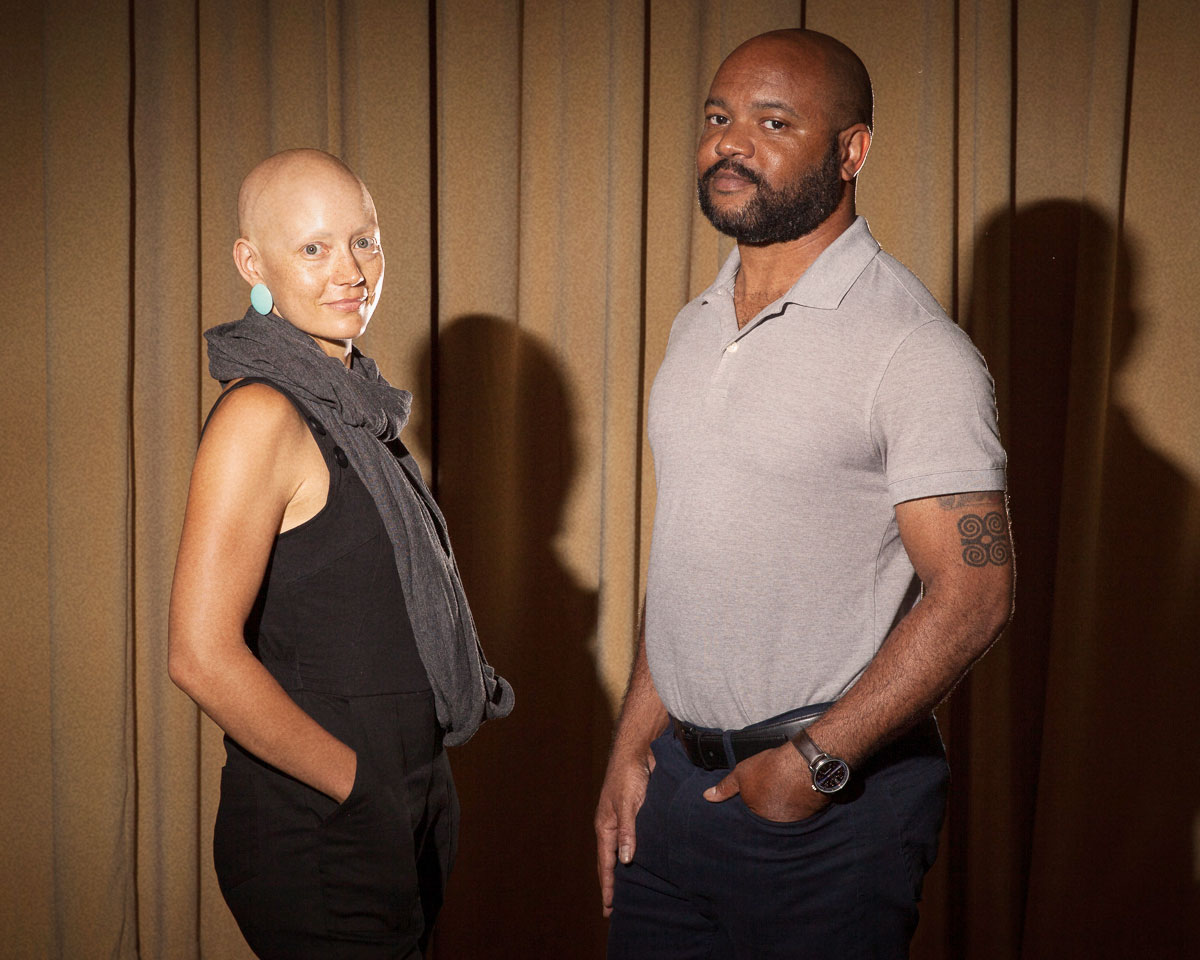
Where You'll Go
The skills you will learn as a creative writing major—how to read and think critically, how to write with precision and ingenuity, how to do research—will prepare you well to be a creative writer, grants writer, content strategist, editor, copywriter, social media manager, and more.
Major Details
The program information listed here reflects the approved curriculum for the 2023-2024 academic year per the Brooklyn College Bulletin. Bulletins from past academic years can be found here .
Major Requirements (47–52 Credits)
I. english 2120 and 2121 (8 credits).
English 2120 and 2121 are required. Creative writing majors should complete either English 2120 or 2121 , or be enrolled in one or the other, before continuing in other electives. No ENGL course numbered lower than 2115 may count toward the major.
II. Creative writing courses (16 credits)
- English 2301 .
- English 3301 , 3302 .
- English 3304 , 3305 .
- English 3306 , 3307 .
- One additional creative writing courses in the English Department: ENGL 2302 , or any of the courses 3301–3307 that has not been used to satisfy requirement (ii)b.
III. Periods of Study (10-12 credits)
One course from from 900–1800 and two from 1800 to the present:
- 900–1500: English 3111 , 3112 , 3520 , 4101 ; Comparative Literature 3614 .
- 1500–1660: English 3120 , 3121 , 3122 , 3123 , 3124 , 3125 , 4102 ; Comparative Literature 3615 .
- 1660–1800: English 3131 , 3132 , 3133 , 3234 , 4103 ; Comparative Literature 3616 .
- 1800–1900: English 3140 , 3141 , 3142 , 3143 , 3145 , 3151 , 3156 , 3157 , 3158 , 3160 , 4104 , 4107 ; Comparative Literature 3606 , 3617 .
- 1900–1950: English 2402 , 3152 , 3153 , 3156 , 3159 , 3160 , 3161 , 3162 , 3163 , 3164 , 3165 , 3170 , 3171 , 3172 , 3173 , 3193 , 4110 , 4107 , 4108 ; Comparative Literature 3607 , 3608 , 3610 , 3618 , 3622 , 3623 , 3624 , 3625 .
- 1950–the Present: English 2402 , 3154 , 3161 , 3162 , 3166 , 3167 , 3174 , 3180 , 3187 , 3193 , 3194 , 3254 , 4109 , 4112 , 4113 , 4114 ; Comparative Literature 3609 , 3611 , 3619 , 3621 , 3622 , 3623 , 3625 , 4601 , 4602 .
IV. Electives (13-16 credits)
- A) A course that addresses race/ethnicity or empire/post-colonialism (e.g., English 3158 , 3160 , 3161 , 3162 , 3166 , 3169 , 3182 , 3194 , 3234 , 3240 , 3526 , Comparative Literature 3620 , 3623 , 3625 , 3632 , or another course with permission of the chair)
- B) A genre course, or a thematic studies course (addressing a theme such as memory, migration, environmental humanities, literature and psychology, gender and sexuality), or an interdisciplinary studies course (English 3156 , 3157 , 3158 , 3159 , 3163 , 3181 , 3182 , 3183 , 3184 , 3185 , 3186 , 3188 , 3189 , 3190 , 3191 , 3192 , 3265 , 3281 , 3282 , 3286 , 3287 , 3288 , 3292 , 4107 , 4110 , 4111 , Comparative Literature 3601 , 3602 , 3603 , 3604 , 3605 , 3608 , 3612 , 3613 , 3628 , 3629 )
- Capstone seminar: ENGL 4301
- Three to four additional credits in advanced English Department courses. Related courses offered by other departments may be substituted with permission of the English Department chair.
Student Learning Outcomes
Department goal 1: read and think critically..
Program Objective 1: Learn to read literature with a focus on the ways in which form serves content.
Program Objective 2: Use close reading effectively to identify literary techniques, styles, and themes.
Program Objective 3: Learn to read and comment constructively and critically on the creative writing of peers in the workshop context.
Department Goal 2: Understand how language operates.
Program Objective 1: Demonstrate knowledge of literary tropes and techniques (e.g., metaphor, simile, metonymy, synecdoche, word play, and sonic effects such as alliteration, assonance, consonance, and rhythm, etc.)
Department Goal 3: Express ideas—both orally and in writing—correctly, cogently, persuasively, and in conformity with the conventions of the discipline.
Program Objective 1: Create original examples of creative writing that demonstrate complexity through attention to rhetoric, syntax, and tone.
Program Objective 2: Comment and write cogently and persuasively about classmates’ writing in the workshop context.
Program Objective 3: Demonstrate the ability to respond to constructive criticism from instructor and peers by effectively revising writing assignments.
Program Objective 4: Demonstrate the ability to use the currently accepted conventions of standard English mechanics and grammar, with an eye toward how those standards can be stretched in order to achieve innovative modes of expression.
Department Goal 4: Conduct research
Program Objective 1: Learn how to research and seek out historical and contemporary literary voices relevant to their individual voice.
Program Objective 2: Make use of the opportunities that Brooklyn College and New York City afford by attending readings, plays, literary panel discussions, and submitting to literary magazines.
Outcomes for demonstrating achievement of objectives
Written work (including poems/stories/plays, in-class writing exercises, short written reflections on literary techniques used by published writers, workshop responses for peers, revised writing samples, etc.)
Contributions to class discussions and workshops
Attendance at readings, panels, performances or a related research project (such as researching literary magazines/submitting one’s work); documented via written summary of the activity handed into instructor
Degree Maps
View all past degree maps .
Contact the English department for information on academic advisers and office hours.
Or contact:
Office of Undergraduate Admissions
222 West Quad Center 2900 Bedford Avenue Brooklyn, NY 11210 E: [email protected]
To make an appointment with an undergraduate admissions counselor, please visit:
Virtual Admissions Counselor Appointments
The Support You’ll Find
Brooklyn College is an integral part of the cultural and artistic energy of New York City. Our faculty members in English offer incomparable expertise and tremendous talent, and each brings a unique perspective to their teaching and mentoring in and out of the classroom.
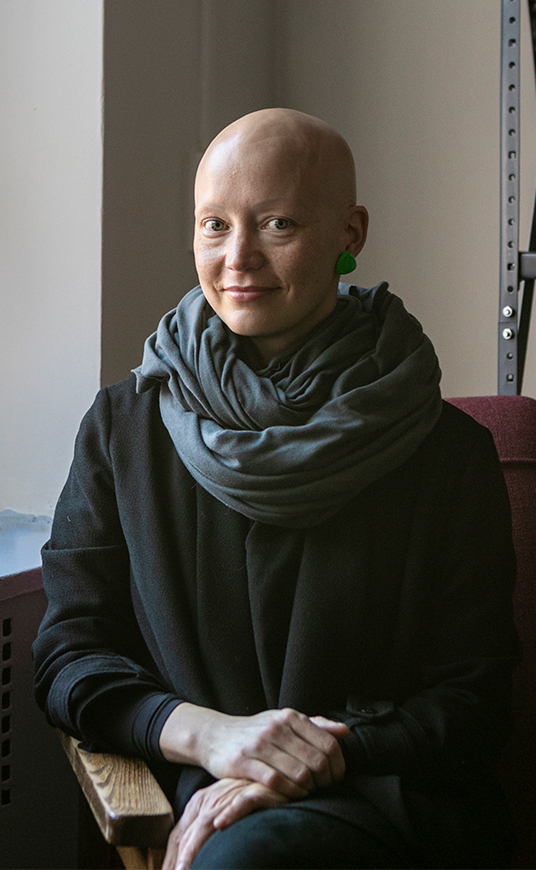
Helen Phillips
Helen Phillips is the author of six books, including the novel THE NEED (Simon & Schuster, 20...
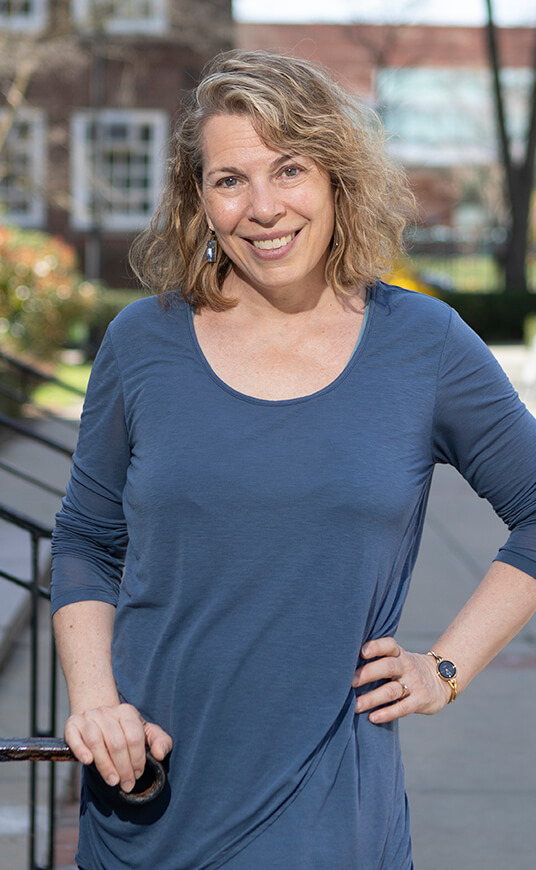
Tanya L. Pollard
Tanya Pollard trained in Classics, English, and Comparative literature, at Oxford and Yale. She t...
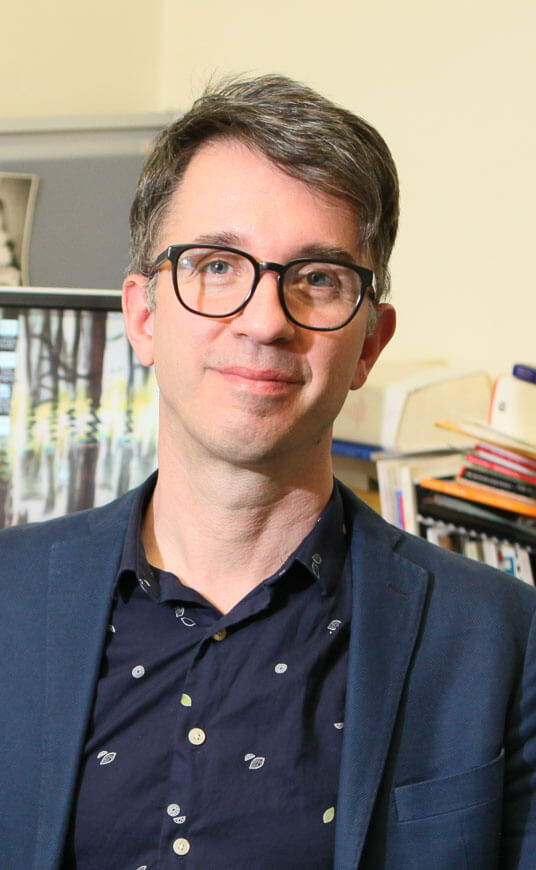
Karl T. Steel
Dorell Thomas
Dorell Thomas earned master’s degrees in both English Adolescent Literature, Grade 7-12 and...
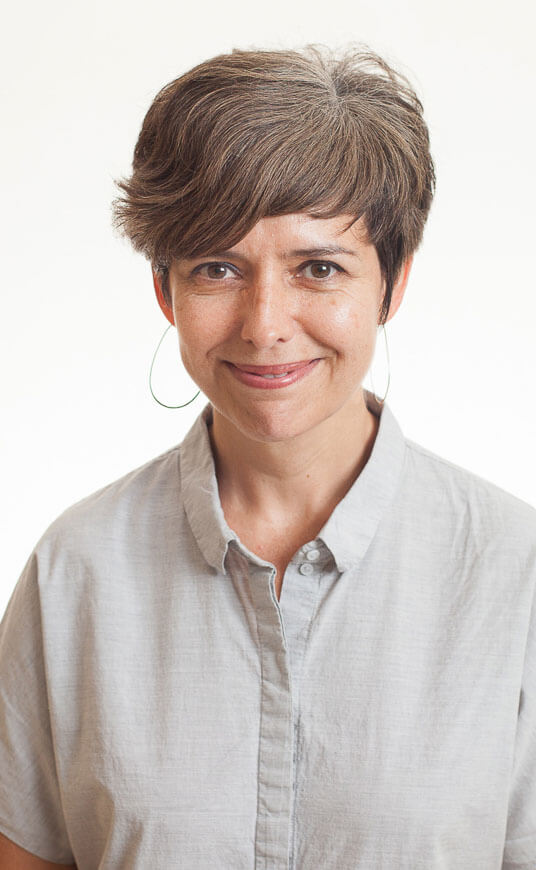
Monica De La Torre
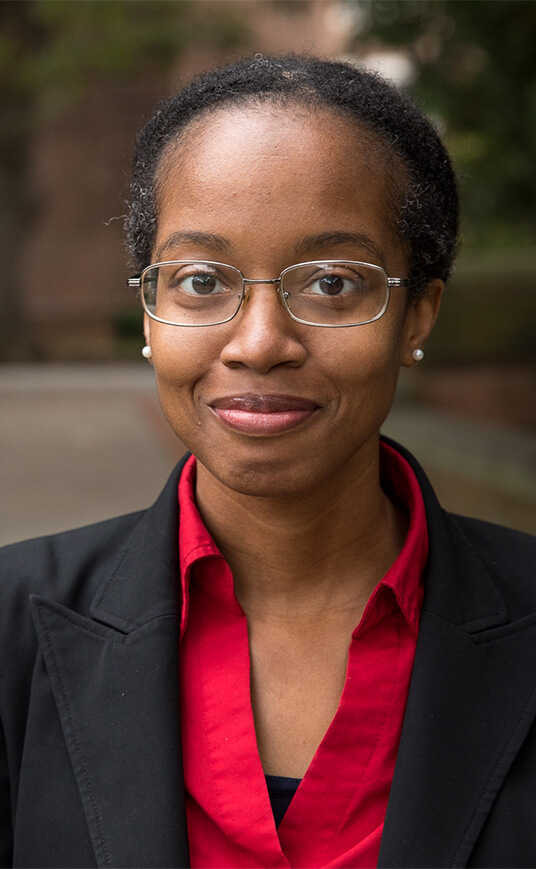
Simanique Moody
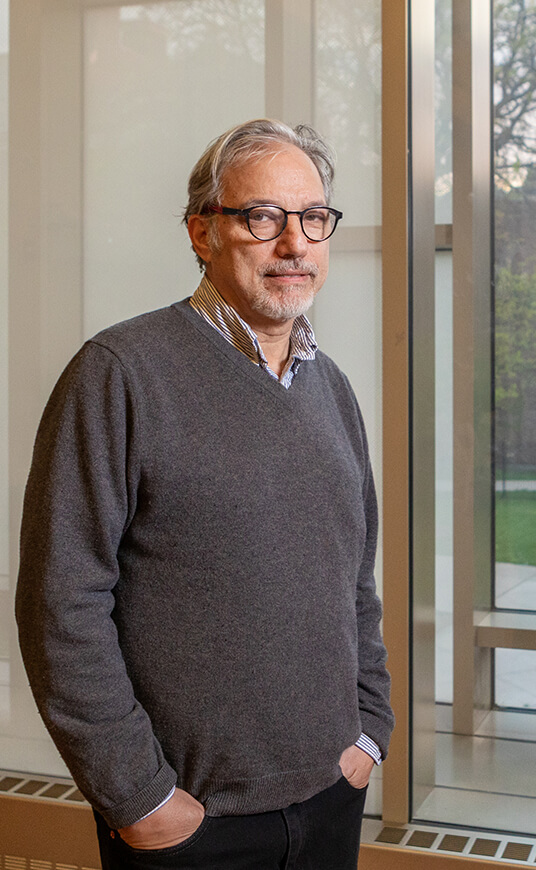
Eric Alterman
Eric Alterman is a CUNY Distinguished Professor of English and Journalism. He was the “The ...
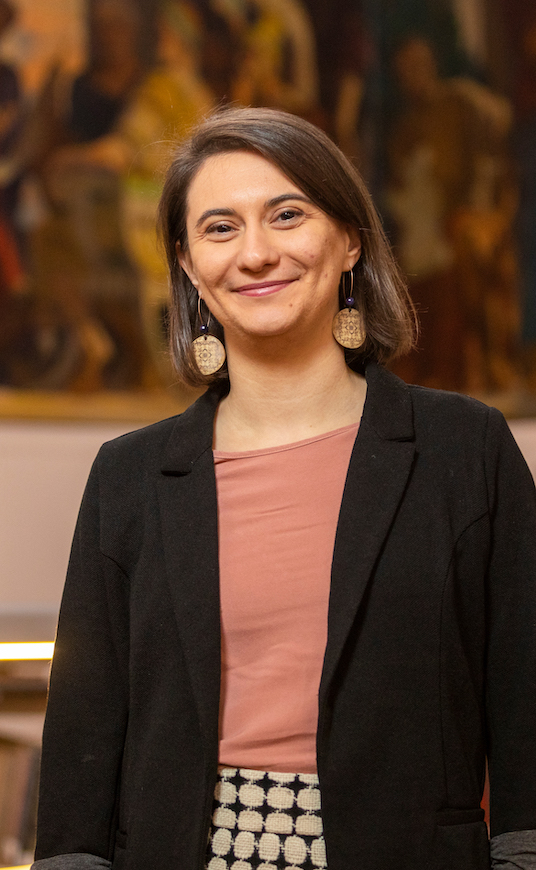
Sophia Bamert
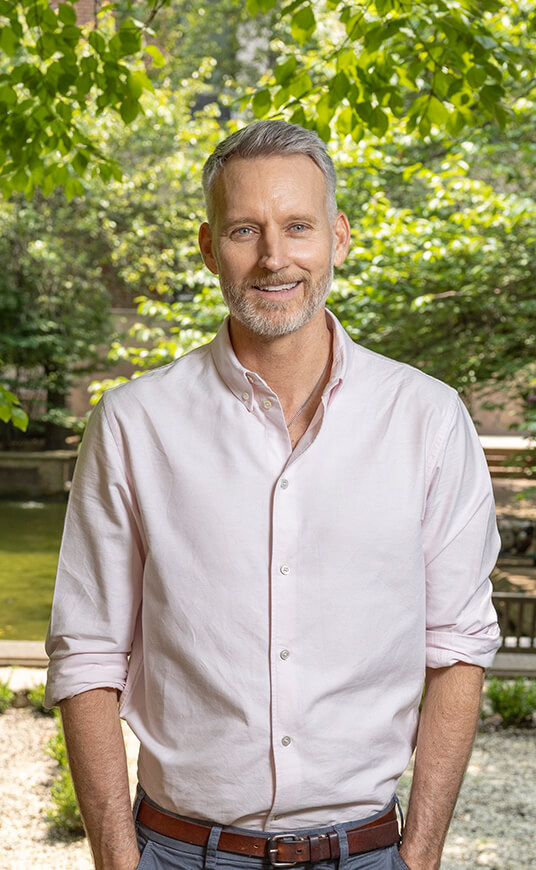
Matthew Burgess
Matthew Burgess began teaching at Brooklyn College in 1999 while pursuing his M.F.A. in Poetry. H...
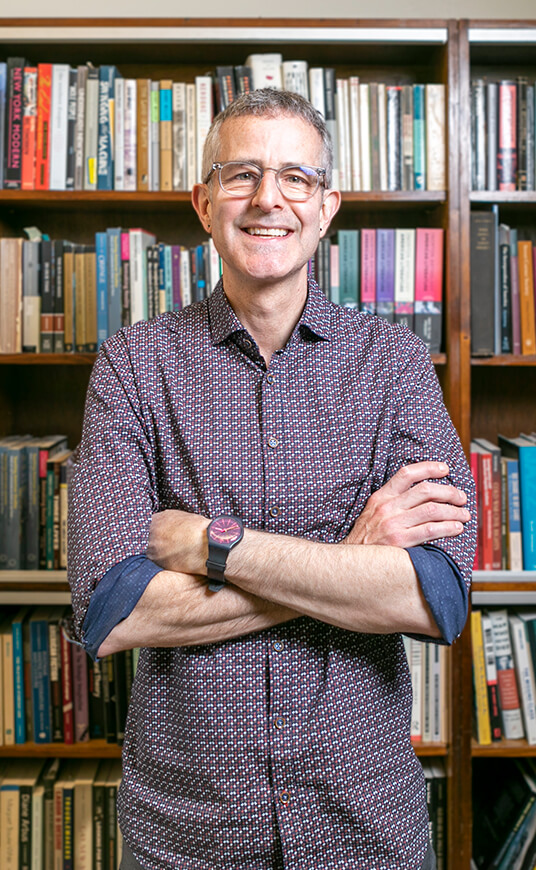
Joseph Entin
Joseph Entin teaches in the English Department and the American Studies program at Brooklyn Colle...
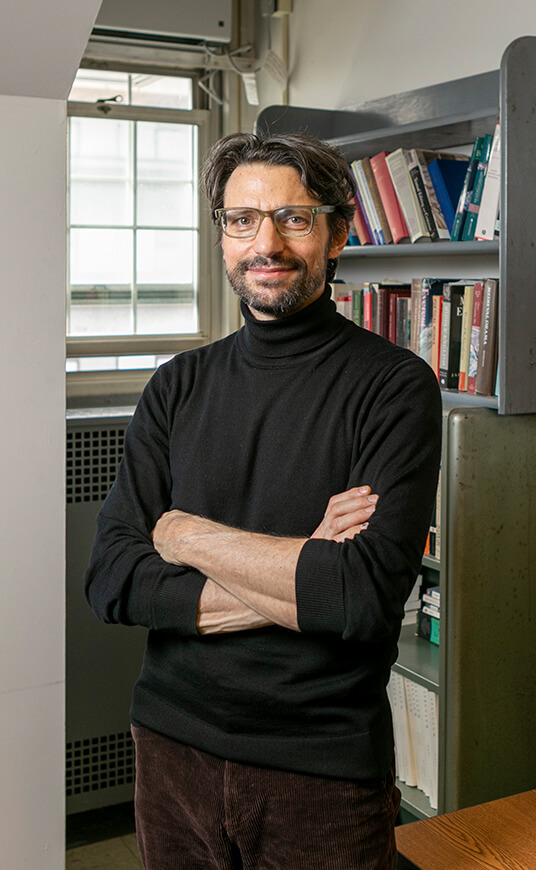
Nicola Masciandaro
The Whim (blog) Current Projects: Appalling Melodrama, ...
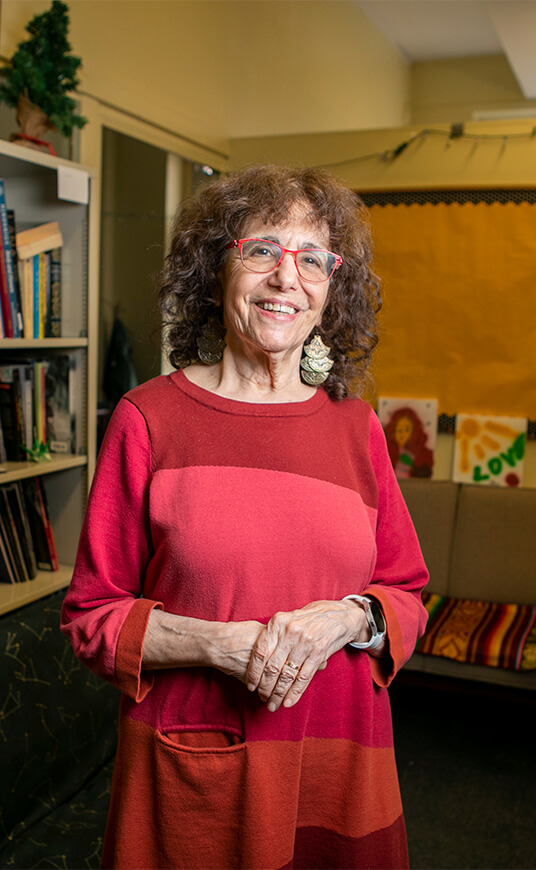
Roni Natov has lived her entire life (almost) at Brooklyn College, where she was a student and ha...
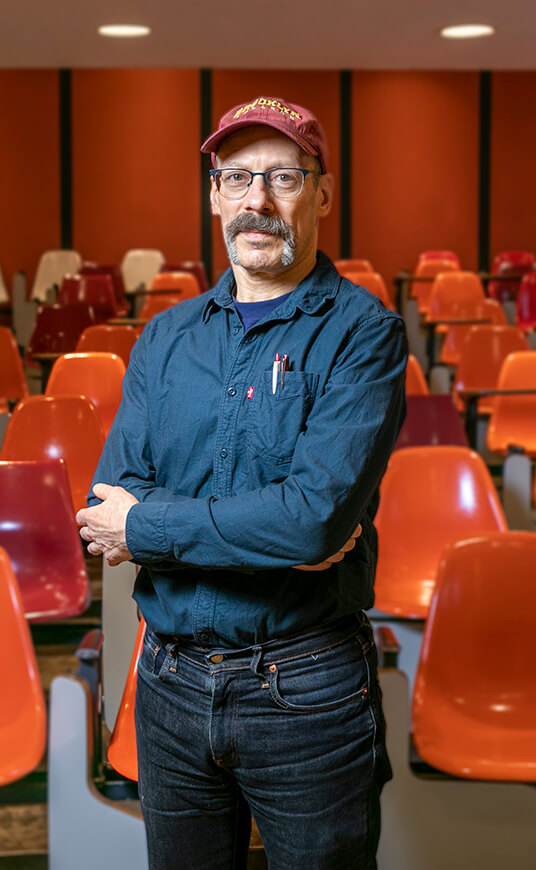
Jonathan Nissenbaum
Jon Nissenbaum earned his Ph.D. under the supervision of Noam Chomsky and David Pesetsky. Before ...
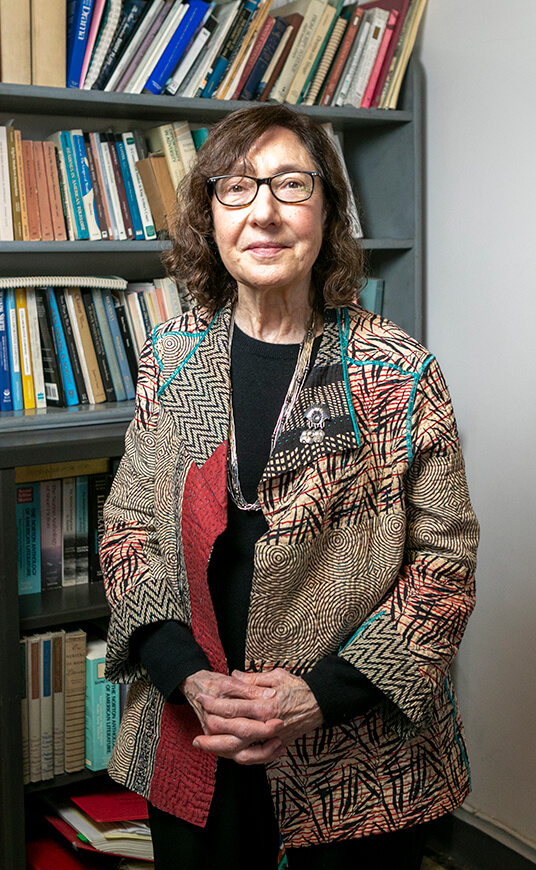
Ellen Tremper
Native New Yorker Ellen Tremper has taught at New York University and joined the Brooklyn College...
Internships and Employers
Through job fairs, the internship database, and internship panels, the Magner Career Center gives students in the creative writing B.F.A. program access to career opportunities at a wide variety of employers, including:
- CBS News and Stations
- Harlem Children’s Zone
- Planned Parenthood
- Rent the Runway
- Varsity Tutors
Student Resources
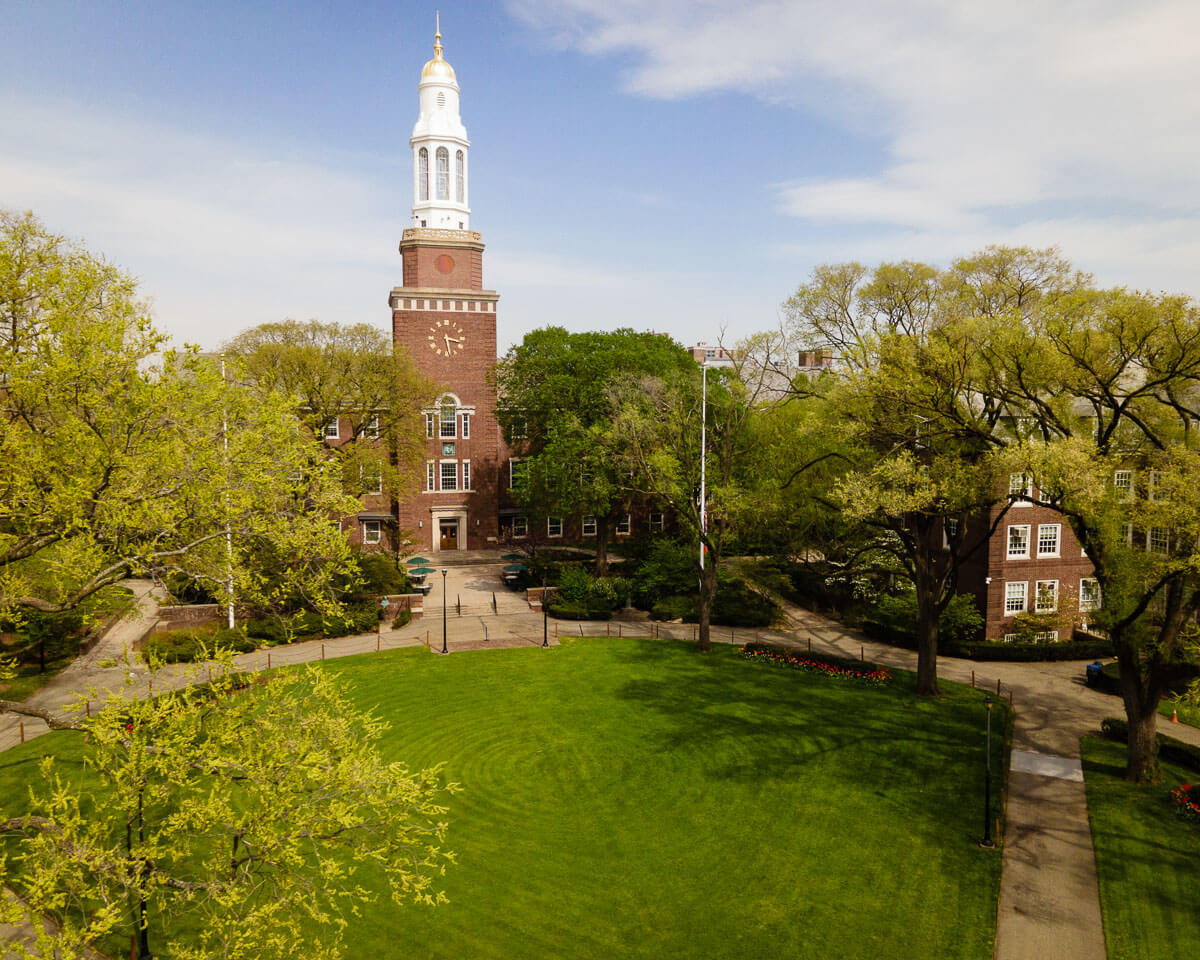
Take the Next Step
Request Info Visit Our Campus Apply Now
Brooklyn. All in.

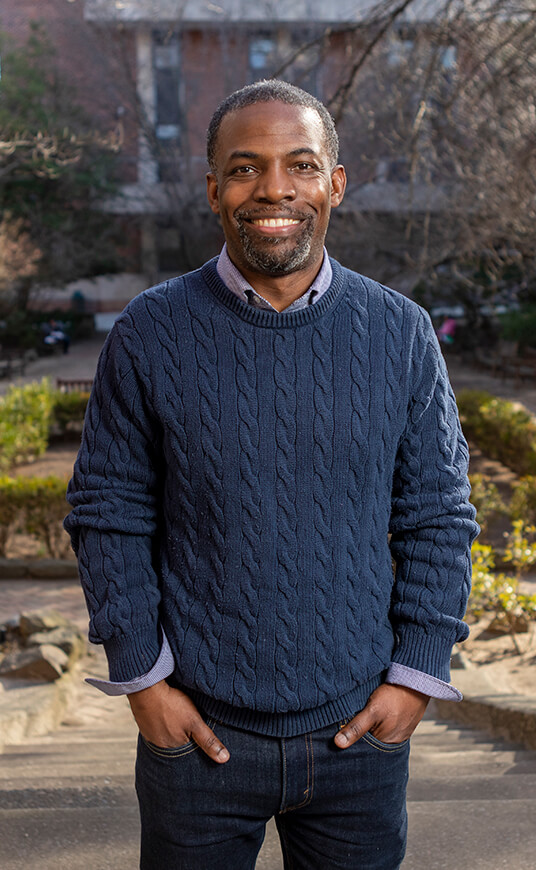
IMAGES
VIDEO
COMMENTS
• Alum Bruna Dantas Lobato won the 2023 National Book Award in translation • Faculty member Sharon Olds received the Joan Margarit International Poetry Prize from King Felipe VI in July 2023 • Alumni Tess Gunty and John Keene each won a 2022 National Book Award in fiction and poetry, respectively • Books by faculty members Sharon Olds and Meghan O'Rourke; and alums Tess Gunty, John ...
as.nyu.edu/cwp Lillian Vernon Creative Writers House, 58 West 10th Street, New York, NY 10011-8702 • 212-998-8816. Director. Professor Landau. The New York University Program in Creative Writing, among the most distinguished programs in the country, is a leading national center for the study of writing and literature.
The MFA Program in Creative Writing consists of a vibrant community of writers working together in a setting that is both challenging and supportive. This stimulating environment fosters the development of talented writers of poetry, fiction, and creative nonfiction. The program is not defined by courses alone, but by a life built around writing.
A creative writing sample is required. It should not exceed 25 double-spaced pages for fiction and nonfiction applicants and 10 single-spaced pages for poetry applicants. The font size should be 12 point or larger. Last updated August 2023.
Creative Writing (2022 - 2024) Minor. The minor in creative writing offers undergraduates the opportunity to sharpen their skills while exploring the full range of literary genres, including poetry, fiction, and creative nonfiction. All students must complete 16 points of coursework in creative writing in order to fulfill the requirements of ...
to enjoy America's most literary terrain; New York University is situated in the heart of Greenwich Village, a part of the city that has always been home to writers. The MFA in Creative Writing is designed to offer students an opportunity to concentrate intensively on their writing. This program is recommended
Creative Writing (2022 - 2024) In addition to the on-campus creative writing courses offered throughout the year, special January term and summer programs offer students a chance to study intensively and generate new writing in Florence, New York, and Paris. CRWRI-UA 815 Formerly Creative Writing: Introduction to Fiction and Poetry.
The Creative Writing concentration is designed for beginner through experienced writers who wish to develop their craft. Through studio classes in poetry, prose, and performance, you will concentrate on generating texts and learning the conventions of particular genres and forms. You also will participate in interdisciplinary humanities ...
The New York University Program in Creative Writing, among the most distinguished programs in the country, is a leading national center for the study of writing and literature. The undergraduate and graduate programs provide students with an opportunity to develop their craft while working closely with some of the finest poets and novelists ...
LS Writing Program. The LS writing curriculum, with its focus on creative and critical expression across first-year and upper level courses, is an integral part of Liberal Studies. The course offerings in both the LS Core and Global Liberal Studies help students develop their voices and critical eye through a range of topic-oriented, first-year ...
Graduate Program Director Deborah Landau Director 58 West 10th Street NYU Creative Writing Program New York New York, United States 10011 Phone: 2129988816 Email: [email protected] URL: https://as.nyu.edu/cwp.html. The Graduate Creative Writing Program at New York University has distinguished itself for more than two decades as a leading national center for the study of literature and ...
Creative Writing Experiments provides a foundation in at least two genres or areas of creative writing (i.e. fiction, poetry, screenwriting, playwriting, creative nonfiction, literary journalism, memoir, and/or translation). The conversations and writing assignments will be guided by a reading list that emphasizes modern and contemporary global ...
The Creative Writing Program's Fall 2022 Reading Series begins this month with events featuring Anne Carson (Sept. 17 & 18), Kaveh Akbar (Oct. 7), Rae Armantrout (Oct. 7), and Joyce Carol Oates (Oct. 27), among others. ... The New York University Creative Writing Program's Fall 2022 Reading Series begins this month with events featuring ...
Ocean Vuong, an award-winning poet, will join the Faculty of Arts & Science at New York University as a Professor of Creative Writing this fall.. Vuong is the author of two collections of poetry—most recently, Time Is a Mother (Penguin Press, 2022)—as well as a New York Times bestselling novel, On Earth We're Briefly Gorgeous (Penguin Press 2019), which has been translated into 36 languages.
Writing events. National Novel Writing Month (NaNoWriMo) National Novel Writing Month, often shortened to NaNoWriMo, is a U.S.-based nonprofit organization that promotes creative writing around the world. Its flagship program is an annual, international creative writing event in which participants attempt to write a 50,000-word manuscript ...
To study creative writing at Columbia University's School of the Arts, in New York City, is to join a distinguished group of writers who arrived at a prestigious university in the nation's literary capital to explore the deep artistic power of language. J.D. Salinger enrolled in a short story course here in 1939.
The New School offered the first academic creative writing workshop in 1931 and pioneered a new philosophy of education. The idea: Students would make their own lives and their own stories part of their education. Today, The New School continues to celebrate and cultivate daring and diverse new ...
Program Overview. As a creative writing major, you will join a community of students, faculty, and mentors who will help you develop as an imaginative writer and a bold thinker. You'll pursue a course of study that combines training in the art and craft of writing alongside literary scholarship. Working closely with our active, publishing ...